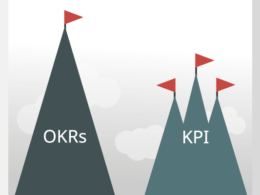Enhanced Due Diligence (EDD), also known as Politically Exposed Person (PEP) screening, is a process that banks and other financial institutions must use to identify the risk associated with doing business with foreign individuals.
The process includes collecting information on human traffickers, corrupt government officials, terrorists, drug dealers, and others who pose a threat to their customers. This information is used to determine whether or not to open an account for someone or conduct business with them in any way.
Enhanced Due Diligence (EDD)
Enhanced Due Diligence (EDD) is a set of procedures that financial institutions use to identify and mitigate money laundering and terrorist financing risks. EDD helps financial institutions identify the beneficial owners of customers, i.e., those who ultimately control or direct a business. This can be done by conducting enhanced customer due diligence procedures on high-risk clients, or by obtaining reliable third-party information or certifications where it is unavailable from existing databases.
Enhanced Due Diligence requirements vary depending on jurisdiction and sector but typically include:
- Customer identification practices: Collecting sufficient information about customers when opening accounts; updating this information periodically; knowing who owns or controls companies; checking for suspicious activity patterns; monitoring accounts for unusual activity in order to detect any signs of fraud early on
The Financial Action Task Force (FATF)
The Financial Action Task Force (FATF) is an intergovernmental organization established in 1989 to develop policies to combat money laundering, terrorist financing, and the financing proliferation of weapons of mass destruction.
The FATF Secretariat is hosted by the OECD in Paris, France. The FATF has 37 members: 34 associate members and 3 observer countries.
The FATF is active in the following areas: Setting standards and promoting effective implementation of legal, regulatory, and operational measures for combating money laundering, terrorist financing, and the proliferation of weapons of mass destruction; Implementing a global anti-money laundering (AML) supervisory regime for financial institutions; and Enhancing international cooperation and technical assistance.
The European Banking Authority (EBA)
The European Banking Authority (EBA) is an independent EU agency that was established to safeguard financial stability in the EU. The EBA contributes to the development of European banking and insurance policies, including by issuing guidelines on regulatory issues. One of its roles is to assess risks to financial stability, which it does through its yearly Stress Test exercise.
The Financial Stability Board (FSB), an international body set up by G20 countries in 2009, also plays a role in enhanced due diligence. Its standards are considered important for banks because they provide guidance on risk management practices used by supervisors around the world
The United States Department of the Treasury (USTD)
Enhanced due diligence (EDD) is the process of evaluating the risk of money laundering and terrorist financing in a customer relationship and taking steps to mitigate that risk, including conducting ongoing monitoring to detect and report suspicious transactions.
The United States Department of the Treasury (USTD) has defined EDD as “the process of evaluating the risk of money laundering and terrorist financing in a customer relationship and taking steps to mitigate that risk, including conducting ongoing monitoring to detect and report suspicious transactions.”
The Bank Secrecy Act of 1970
The Bank Secrecy Act of 1970 (BSA) is a federal law that requires financial institutions to report suspicious activity. The BSA was enacted in 1970 and amended in 2001 and 2006. It requires financial institutions to file Suspicious Activity Reports (SARs) when they suspect that a transaction may be related to money laundering or terrorist financing.
The intent of this law is not to punish people for innocent mistakes but rather it’s designed to deter criminals from using banks as a vehicle for their illegal activities.
More businesses and governments are requiring enhanced due diligence.
EDD is a process that has been around for a long time, but it’s becoming increasingly important. More businesses and governments are requiring EDD as part of their due diligence processes because they want to know the full extent of your business partner’s risk profile.
In addition, the cost of conducting an enhanced due diligence review has increased significantly over the past few years. This means that businesses need to determine whether or not they can afford such an expense before moving forward with any new partnerships or transactions.
Conclusion
With the increased threats to financial institutions and governments, it is important to be aware of these regulations and how they can affect your business. We hope that this article has given you some insight into what EDD is, where it came from, and how it affects us today.


















